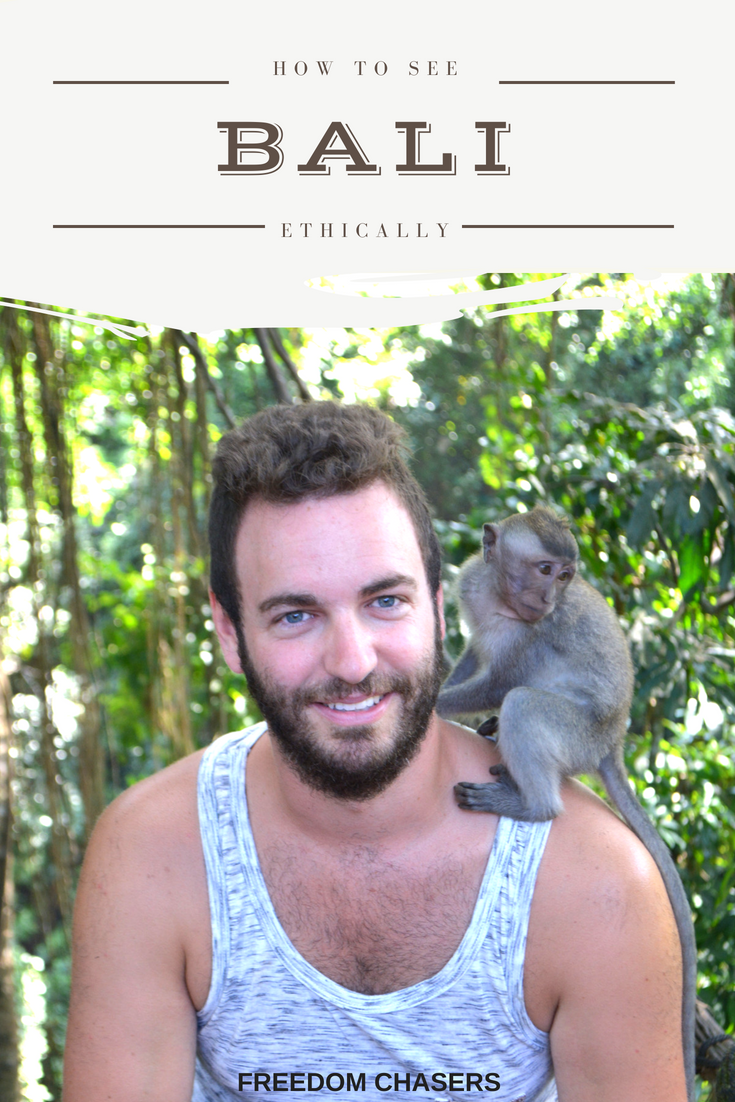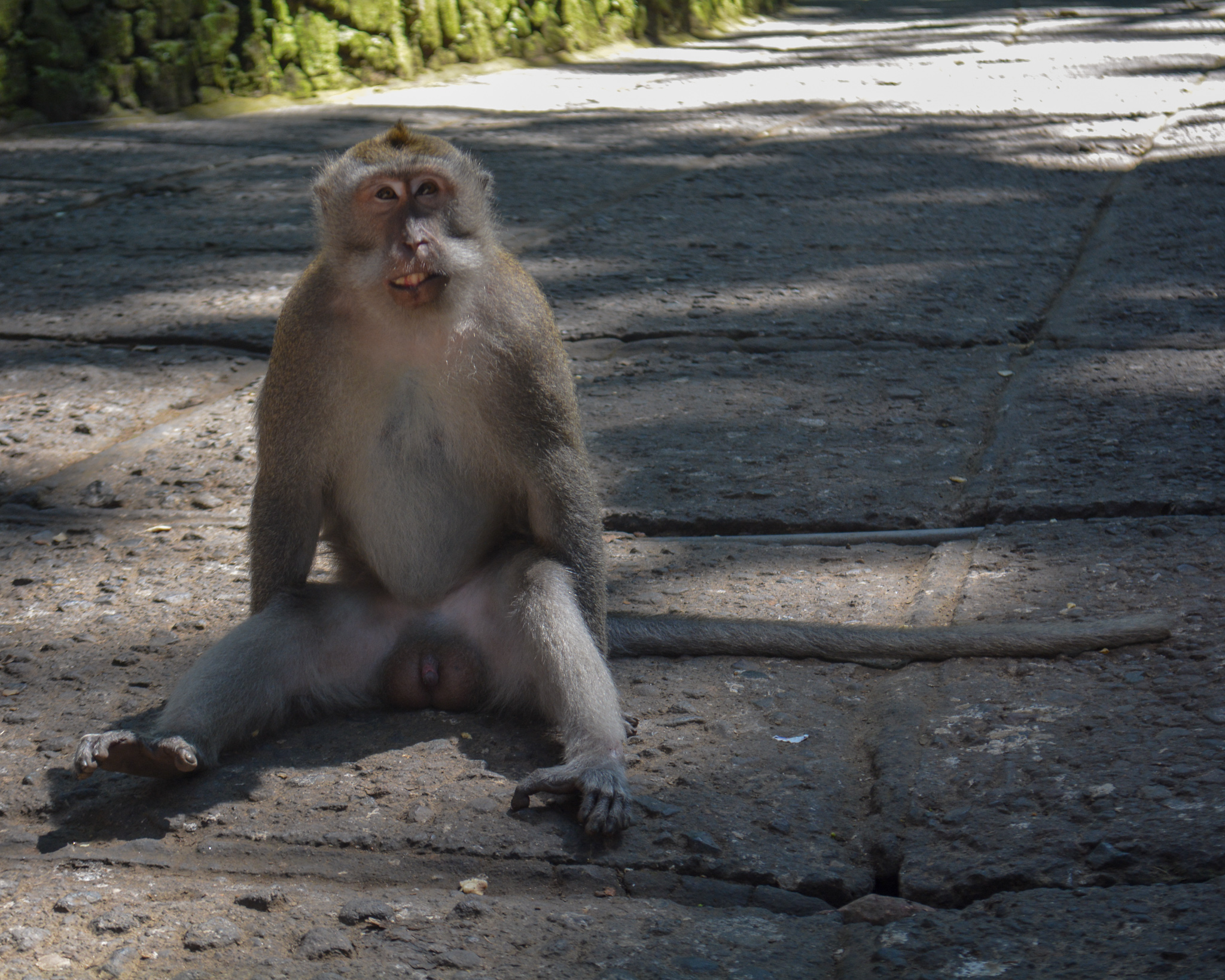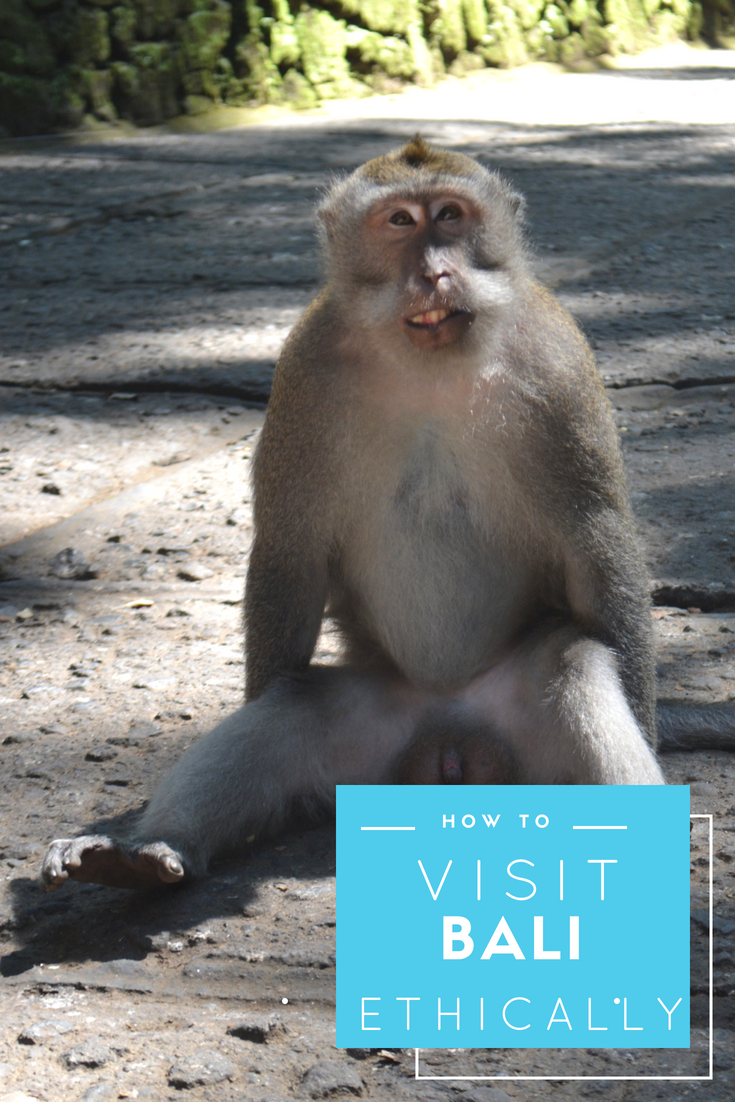
Bali has gotten some serious attention in the last decade as a top tropical travel destination. This sudden boom in tourism has been great for the country. It has also had some serious harmful effects. Unfortunately, as with many other travel destinations, there are still a lot of unethical things going on due to the tourism industry. It is important that as tourists we are aware of our effects on the country we are visiting. If there is no demand for these harmful practices, there will be no industry.
We like to travel but believe in how important it is to do so ethically. Sustainable tourism is the responsibility of both companies and consumers to focus on. We, as tourists, have a responsibility to ensure we aren’t harmfully affecting an area you visit. Supporting ethical businesses and practicing sustainability while travelling is incredibly important in ensuring that the culture, animals, and oceans prosper even after leaving.
As travelling to Bali is on the rise we have listed all the things to avoid in Bali so that you can have the best trip possible. While these industries are in no way Bali specific they do all, unfortunately, have a presence on this travel island hub.

1. Shark Fin Soup
As sharks are my all-time favourite animal, this is the number one thing on our list for a reason! Hollywood’s favourite villain, sharks are actually really amazing animals that have simply been misconstrued as dangerous killers. They also happen to be quite essential to the health and vitality of our oceans.
This industry is absolutely devastating and causing some serious and potentially irreversible damage to not only the species but our oceans as a whole. Even if you think there’s no harm in trying one cup of soup, you are supporting an industry that is having a completely devastating impact on the world we live in.
Warning: a graphic explanation of the shark fin industry is below. If you don’t want to read, skip to the number 2.
The practice of fishing the sharks for these soups is devastating. Sharks are caught and brought aboard a boat. While still alive fishermen use knives to slice off the shark’s fins. The shark, if it hasn’t bled out or died aboard, is thrown back into the water where it sinks to the bottom of the ocean and eventually dies.
2. Elephant Riding
While this industry has certainly gotten some seriously negative press in the last decade, it is still unfortunately a thriving industry on the island. The disappointing thing is the harsh living conditions these elephants face are in no way hidden from tourists, but that simply doesn’t seem to deter people. What is not seen is the tragic abuse that takes place in order to “break” the elephants and tame them. This horrific process is referred to as “the crush” and is what happens to break the spirit of elephants so they can be submissive and therefore domesticated.
Elephants are not meant to be ridden. Their backs are not designed for it and they are abused into submission from a young age to be “trained” into accepting riders. Beware that some elephant places are now getting smart and branding with the term “sanctuary”. Do your research as many of these places might have a savvy marketing team but their practices remain completely unethical.
As of now, there are NO KNOWN ETHICAL ELEPHANT SANCTUARIES on the island of Bali.
3. Zoos

Like all our other points, this isn’t a Bali-specific issue but is important for people to stay away from in every part of the world. Animals are not meant to be held in captivity, period. While we do understand the thrill you can get from seeing an animal you have never seen before, an hour of pleasure for you is certainly not worth a lifetime of agony for animals.
Besides the small cage sizes, the lack of natural habitats, and the improper diet zoo provides, many animals suffer mental health problems from boredom and lack of animal interaction. All in all, this is not a fun place to be. Watching animals being tortured should NOT be a fun family afternoon trip.
You may also like: A Visit To Monkey Forest
4. Street ‘kebabs’

Trying local street food is easily one of the best parts of travelling to a new place. While we always advocate for the experience, we do need to warn you about some of the crazy things you may be getting while in certain areas. While you may like the idea of having a barbecue skewer on the beach, you may not be eating what you think.
Like many other parts of Asia, Bali has a real issue with stray dogs. So much so that the dog meat trade is alive and well in this corner of the world. What passes for chicken, we were told, is often dog meat as it is cheaper to come by.
5. Visiting The Civet Or Luwak Coffee Plantations
These coffee plantations have a strange appeal that I’ve never quite understood. These coffee plantations make their brews using the feces of local animals. Civets, a small cat-like animal native to Asia, are unethically kept in tiny cages and subject to poor living conditions. The animals are fed cherry coffee beans. Their waste is then collected and refined to be a brew of coffee.

While this practice started with a simple collection of feces, the tourist sector came in and quickly popularized it to the point of needing mass production. This meant torture for these small cat-like animals as they quickly became captured and imprisoned in small cages where they are only fed this specific cherry. Your cup of coffee is certainly not worth the expensive price tag and tortured animal.
6. Dolphin Riding
While many people overlook the torture of this industry with the shiny notion that dolphins are social mammals they do not deserve a captive lifestyle and tiny tanks that we subject them to. Dolphins are incredibly intelligent pod mammals that deserve to swim freely in the sea. The charming nature of a bubbly dolphin has made it a favourite animal for so many people which has unfortunately caused a boom in the industry.
Many tourists in Bali take to riding these playful mammals thus contributing to their torture in captivity. Instead, try your hand at scuba diving. This is a safe and ethical way to get your fill of all things marine life.
While this list is long, there are MANY ethical and completely fulfilling ways that you can enjoy this tiny island.
Did I miss anything? What do you think of these activities that are best to avoid in Bali? Tell us about it in the comment section below.
Like it? Pin it!








12 Comments
I’ve been to Bali before but never came across any of these as I guess we just wanted to relax by the beach and enjoy scneries. Its sad to see these still being practised, wish the government will do something about it and things will change.